Sacred Fire is now in Early Access on Steam
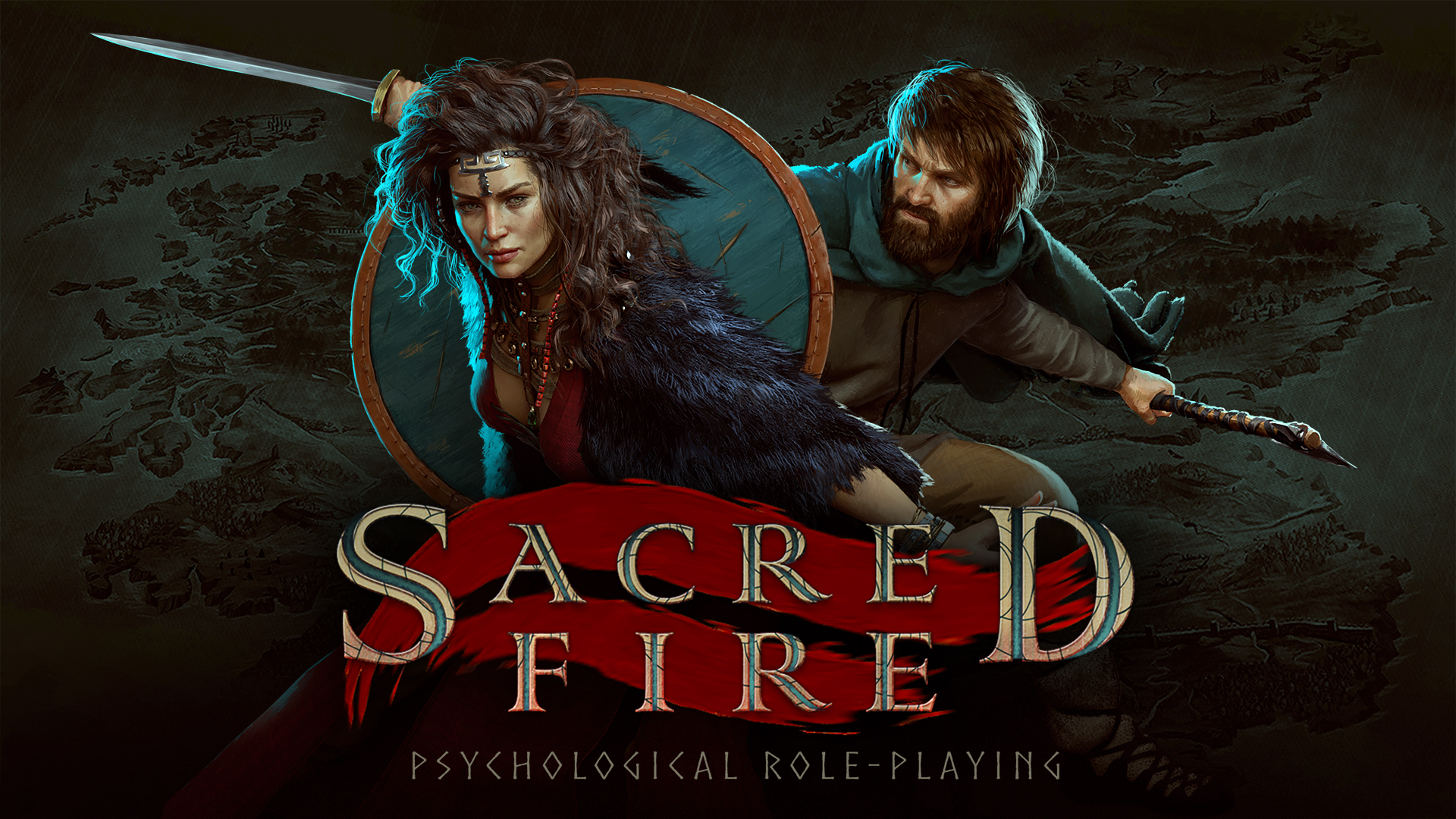
For four generations now, Rome has sought to conquer you — to add Caledonia to its ever-growing list of imperial provinces. Your people quickly realized that an empire as sprawling as Rome can't be defeated head-on. So they waged a different kind of war.
One without direct conflict, which saw you burn your own settlements and leave only scorched earth for the legions. Eventually, Rome decided to stop wasting resources and claimed victory by building a 100-mile wall. But walls don't bring peace.
You were out hunting when it happened. Smoke from the Roman wall. Someone shattered the fragile ceasefire.
The Romans are sure to retaliate, and you know you're about to turn from hunter to prey.
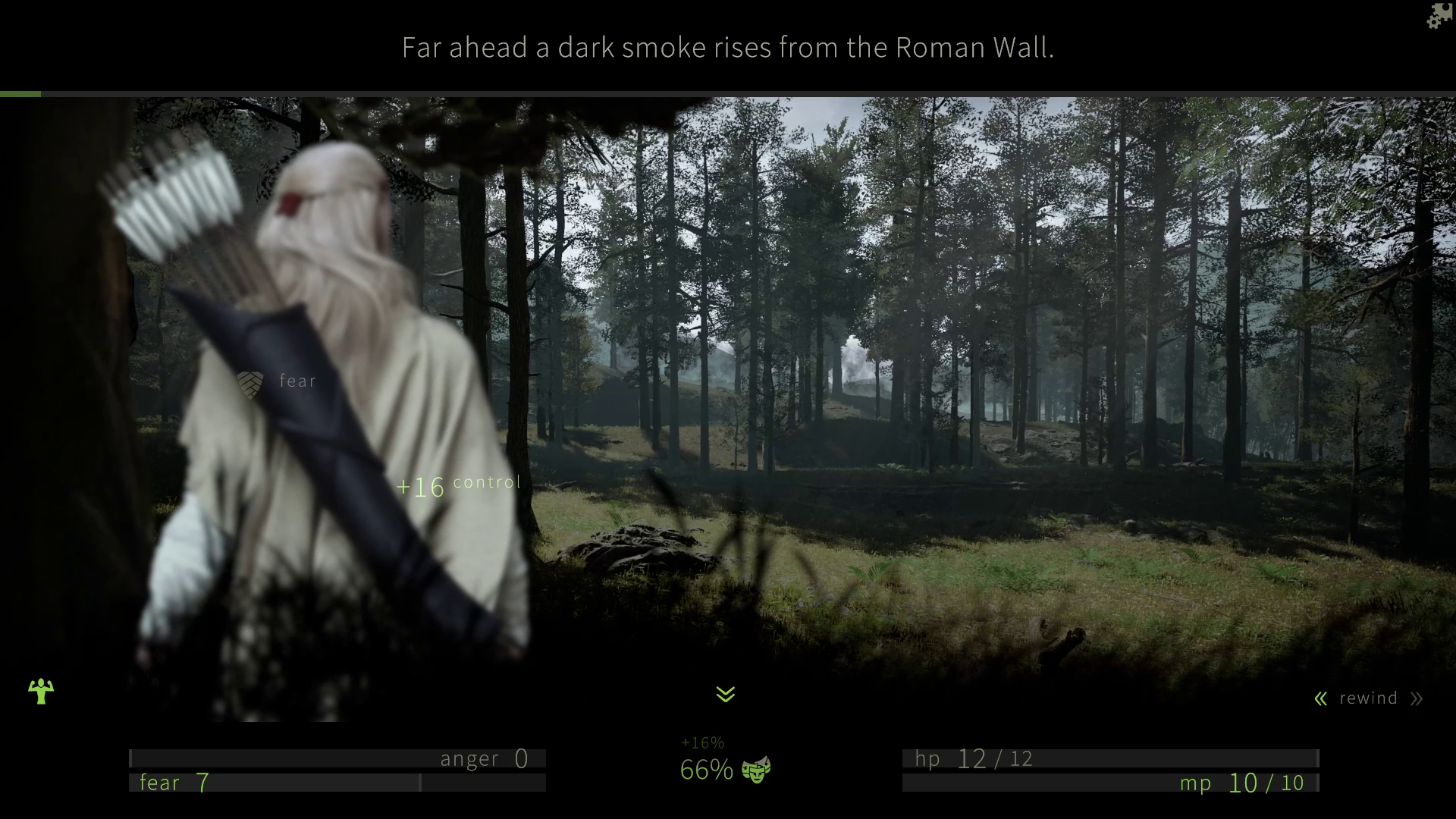
That’s the stage set by Sacred Fire, a psychological RPG developed by poetic and published by Iceberg Interactive. Loosely inspired by real-world history, Sacred Fire puts you in the shoes of a young Caledonian warrior mounting a fierce defense against the Roman invasion. Beyond that basic detail, you control everything about your character, from who they are to who they will become.
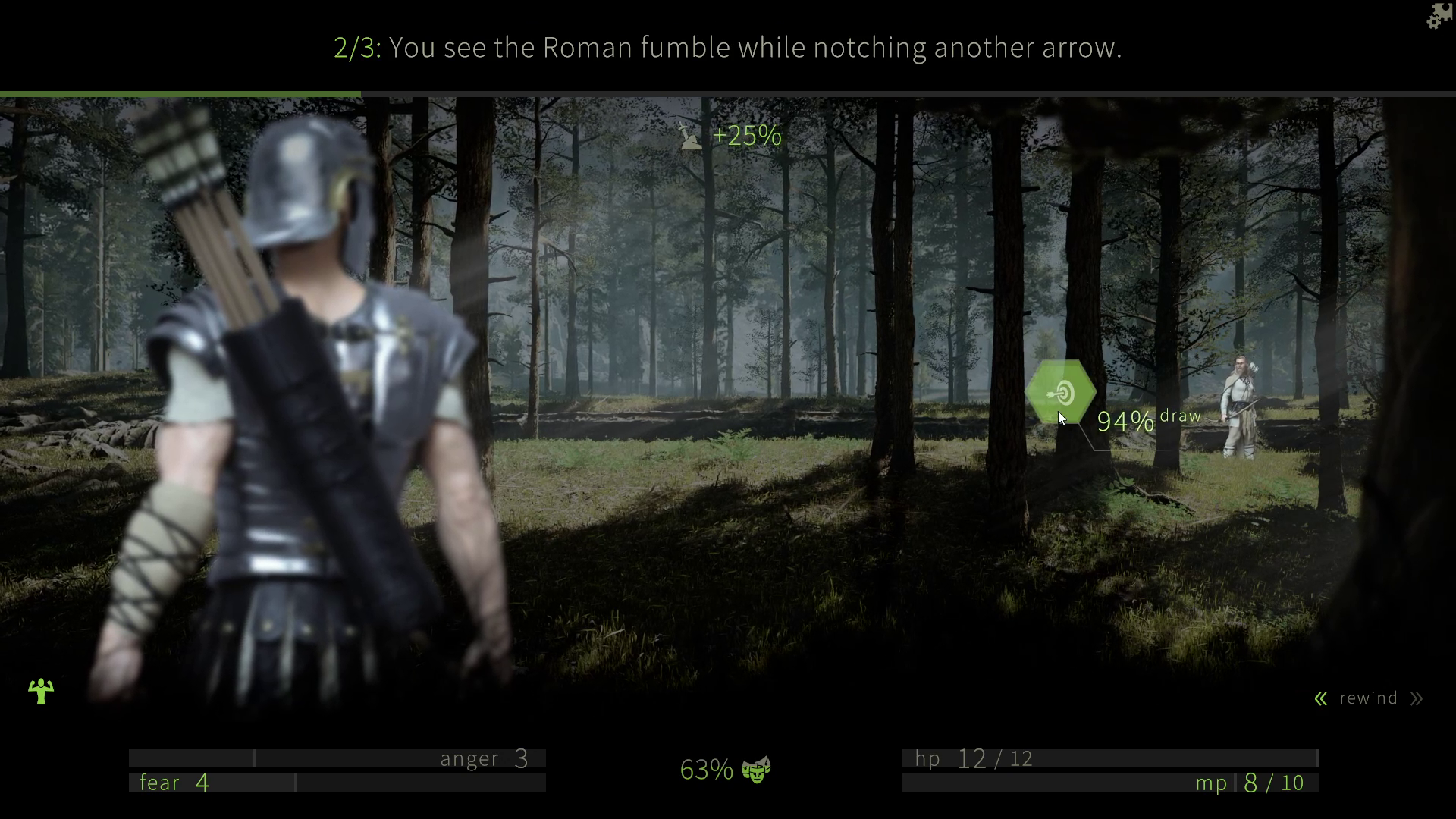
The most interesting thing about Sacred Fire is how it eschews the traditional narrative and gameplay elements of the genre. There is no misleading writing, no instances where a perfectly reasonable conversation option becomes a crisis without positive outcomes. There are no quicktime events to bar you from success.
Instead, the game gives you a means of tilting the odds in your favor with each scene and encounter, a way to gain an edge through wits or subterfuge. Your probability of success, meanwhile, is based not on button presses but on your character's physical and mental state. And emotions are nuanced — fear and anger are not simply negative traits to suppress, but sources of power in both combat and dialogue.
With probabilities come dice rolls, of course. And with dice rolls come the dreaded chance of failure, rendering even the most sound tactics void. To help them stay in control of the story, players can use a resource called willpower to boost the success chance of actions that matter to them.
The challenge of the game, then, is threefold:
- Use your own empathy and intelligence to figure out the smartest play in each scenario.
- Decide when you should control your emotions and when to let them run free.
- Build up the willpower and control to take on whatever challenges your character encounters.
Something else that’s noteworthy about Sacred Fire is that your character, though trained in battle, is not superhuman. You are not some legendary hero with endless willpower and unflappable courage. You are a human being, and you have limits, both mental and physical.
Combat, rather than being a fast-paced arcade-style brawl, is instead an intensely cerebral affair wrapped into the game’s narrative and shaped entirely by your decisions.
Whatever you decide in battle, be warned that every choice has consequences. Moreover, unlike games which throw enemies at you by the dozens, killing in Sacred Fire is a far more personal, intimate affair. And it often carries a heavy psychological toll.
Killing Romans in combat or self-defense is the exception, and your ancient warrior isn't likely to lose much sleep over it. But killing a member of your community is another matter altogether. And make no mistake, good and evil exists on both sides of this conflict.
Given that your character’s emotional well-being plays as much a part in success or failure as their physical condition, that should not be overlooked—and how you deal with them is your decision, as well.
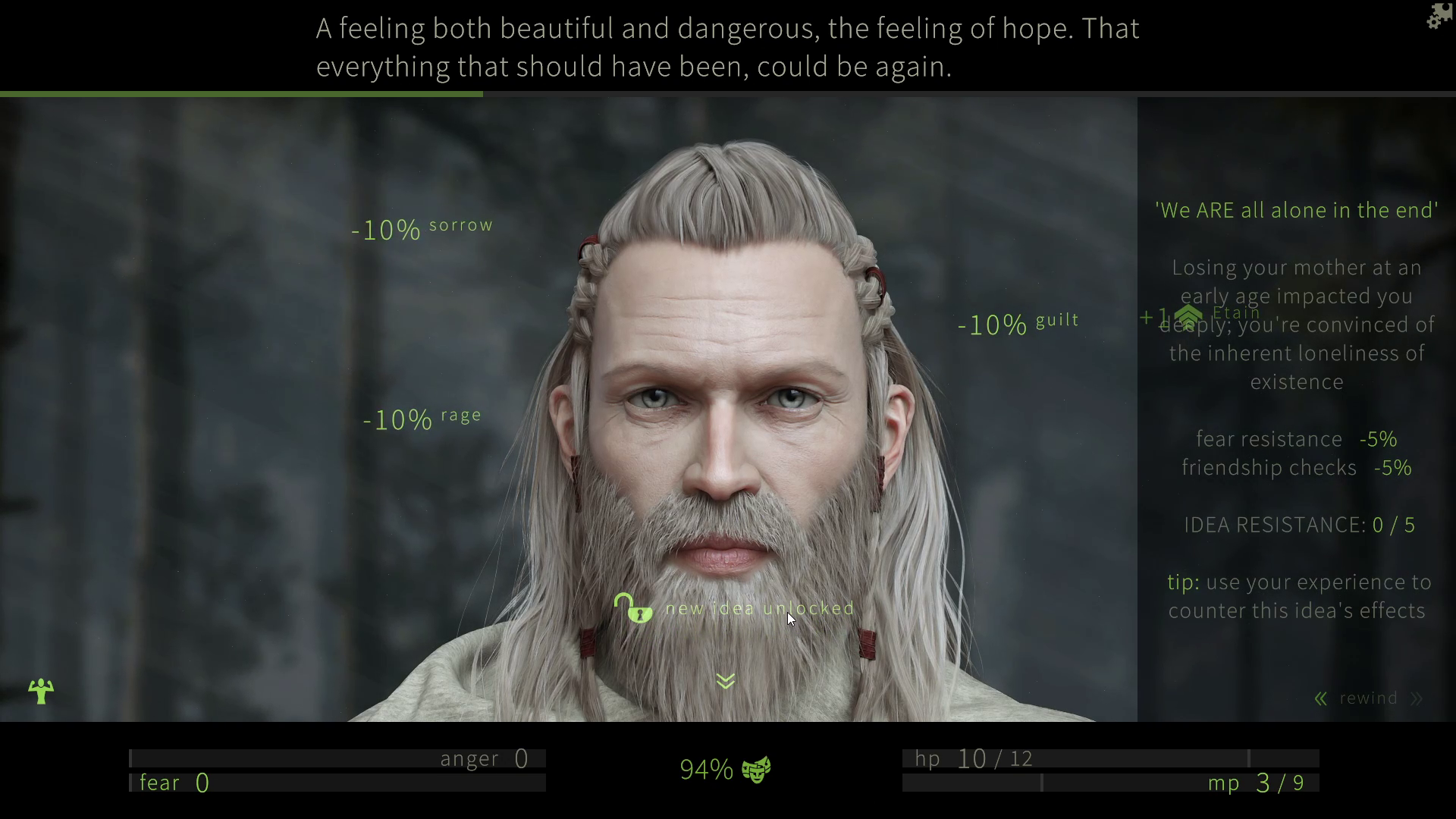
Will you dose yourself with sleeping herbs to keep the nightmares at bay? Will you lie awake, stewing in your pain? Or will you simply ignore it and allow it to tilt the probability of every choice you make?
Your character’s psyche and physical attributes are determined at character creation, along with their flaws. And you will continue to shape those attributes alongside your character throughout the game. Character creation, rather than a puzzle you need to spend hours on before playing, is instead a process.
Your character will slowly become more adept at whatever your preferred approach seems to be. This means that you don't need to worry about playing a character who's not optimized from the start. One might even say that's part of the fun.
To support this experience, story content is never locked or unlocked based on attributes — they simply influence the probability of taking a particular path.
Perhaps you’ll be a master of diplomacy, talking your way out of trouble whenever possible—and hammering away at the insecurities of your foes to unnerve them in battle with little effort. Maybe you’ll be entirely revenge-driven. responding to Rome’s oppression with the mantra that the only good Roman is a dead Roman. Or you might forego the hero’s path entirely, and instead play the part of a self-interested coward, only ever acting to save your own skin.
It’s not just your core traits that influence the narrative, either—it’s how you choose to have your relationships with those around you evolve.
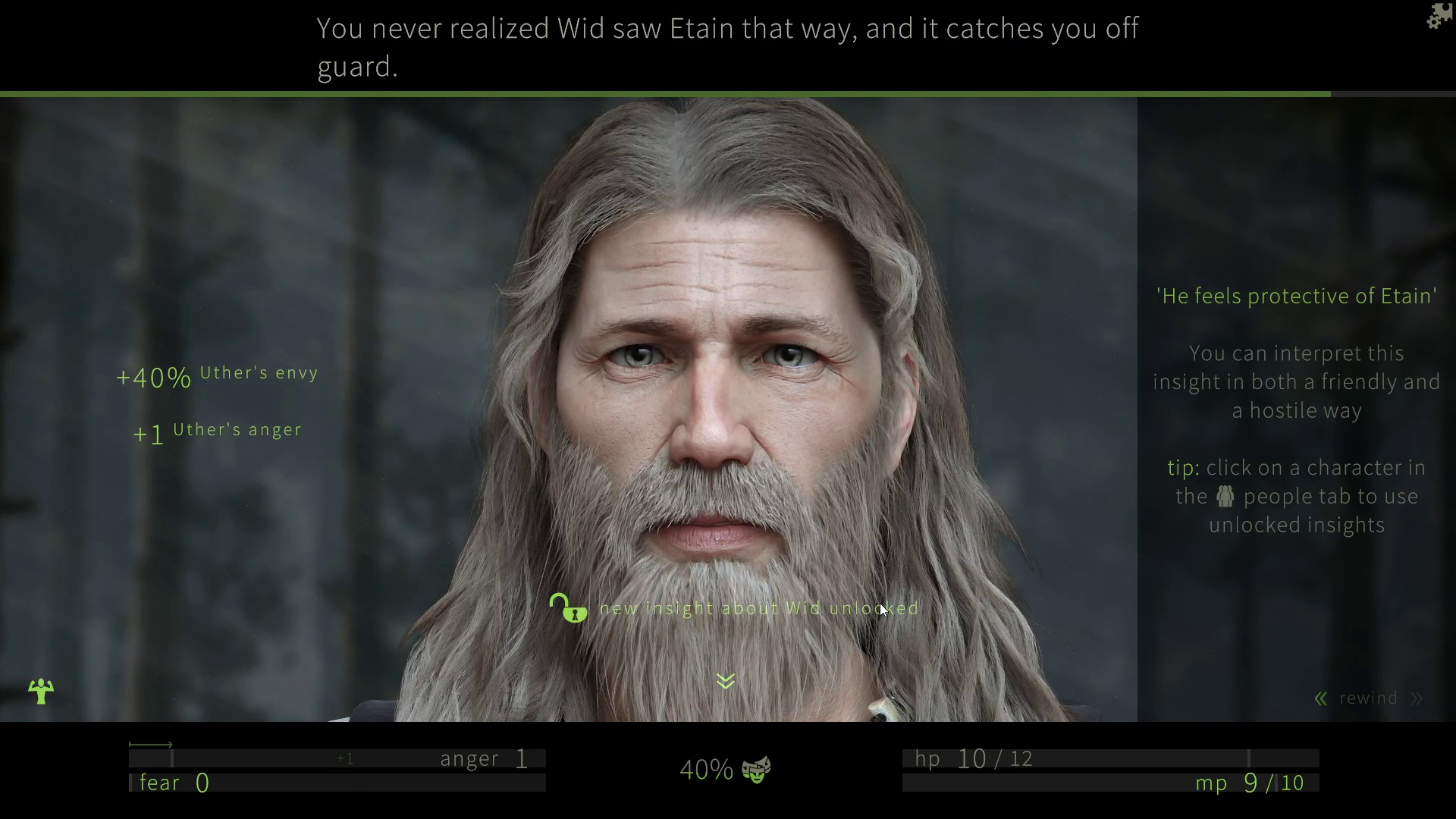
If your character envies someone, they’re less likely to pay them a compliment. If they dislike someone, they’re less willing to work with them. If they’re prejudiced against someone, they’re less likely to treat them with compassion.
In the first chapter, for instance, you encounter the village bully on your way back from the hunt, who immediately demands that you hand over your kill. You're given a multitude of options for resolving this scenario:
- Intimidate him, knowing he's a coward at heart.
- Cave to his demands, and give him the deer to avoid confrontation.
- Offer him the kill as a genuine gesture, since you don't mind that he thinks you're weak - you know your own strength.
- Kill him - either in cold blood or in self-defense.
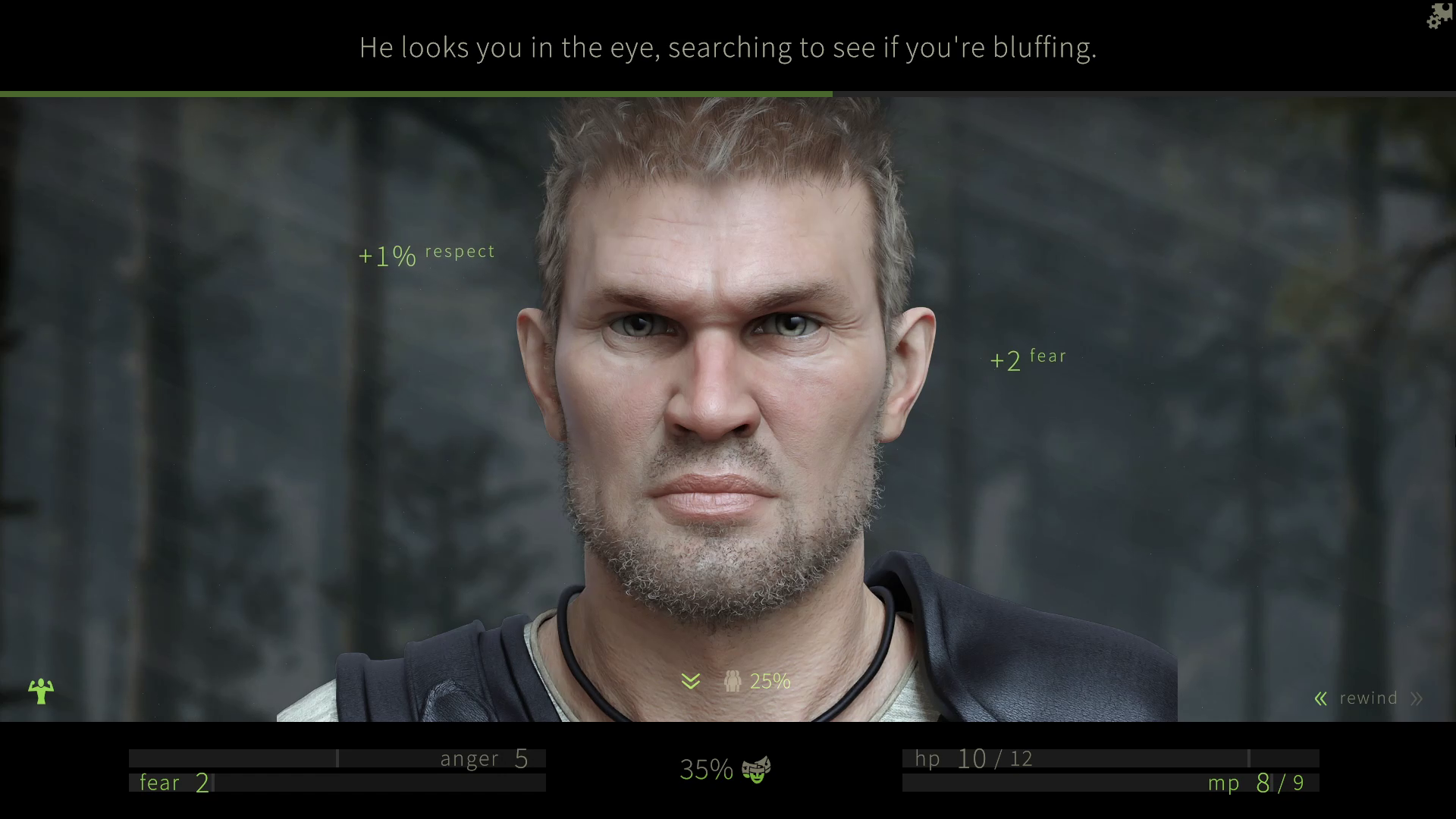
Will any of your choices make him less of a bully? Maybe not immediately, and certainly not if you kill him. But you can still make a dent in his bitterness which might later bring about genuine change.
That brings us to one of the core themes of Sacred Fire. You aren't just fighting for survival. You're vying for the hearts and minds of the men and women who may later follow you and stand at your side to face down death.
A later conversation with your older brother Wid—voiced by Doug Cockle of Witcher fame—can also play out in a number of different ways. If you envy him, for instance, you may be unable to admit that people will listen to him. Instead, you’ll have to take a different path.
The narrative layer described above is not the only aspect of the game. Later, the choices you make will influence politics, as well. Here too, you’ll have an array of choices, from diplomacy to blackmail to sheer intimidation. Can you rise as a leader of the resistance and influence your people to build a better future?
Or will you, like so many others, fall before the might of the Roman warmachine?
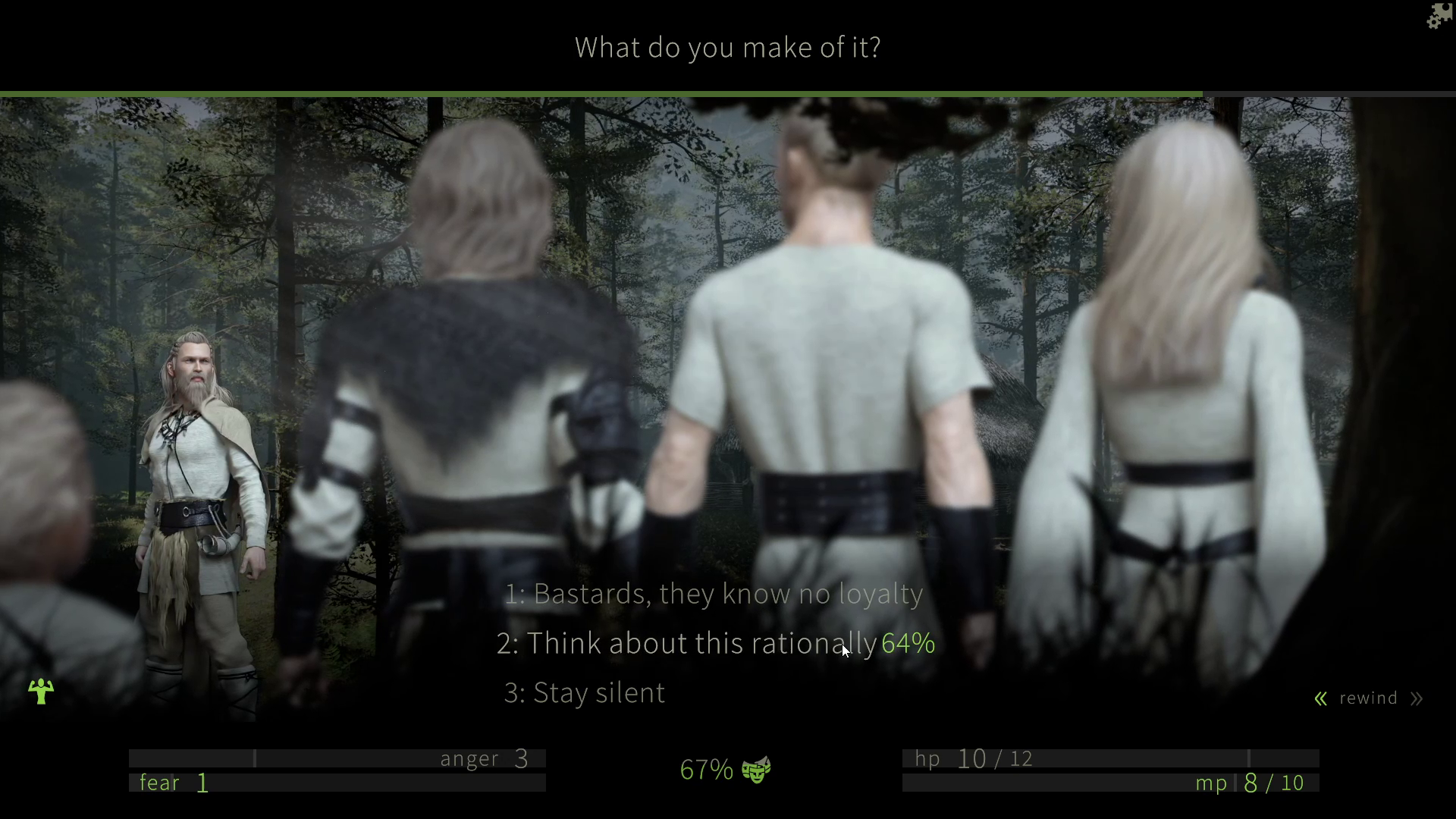
Sacred Fire may appear quite challenging, currently — developed for tabletop roleplayers rather than the wider gaming community. But the developer has their ear to the ground. They're using Steam's Early Access as it's meant to be used, hearing and applying player feedback.
So while the default experience may remain unchanged, difficulty settings will give you a great deal of control over how you play, allowing even those new to the genre to enjoy the story.
Hero. Villain. Champion. Coward. Diplomat. Killer.
Who will you be? Who will you become? And will it be enough to stand against Rome?
You’ll have to find that out for yourself.
Sacred Fire is currently available in Early Access on Steam.
Keep up to date with the most important stories and the best deals, as picked by the PC Gamer team.

